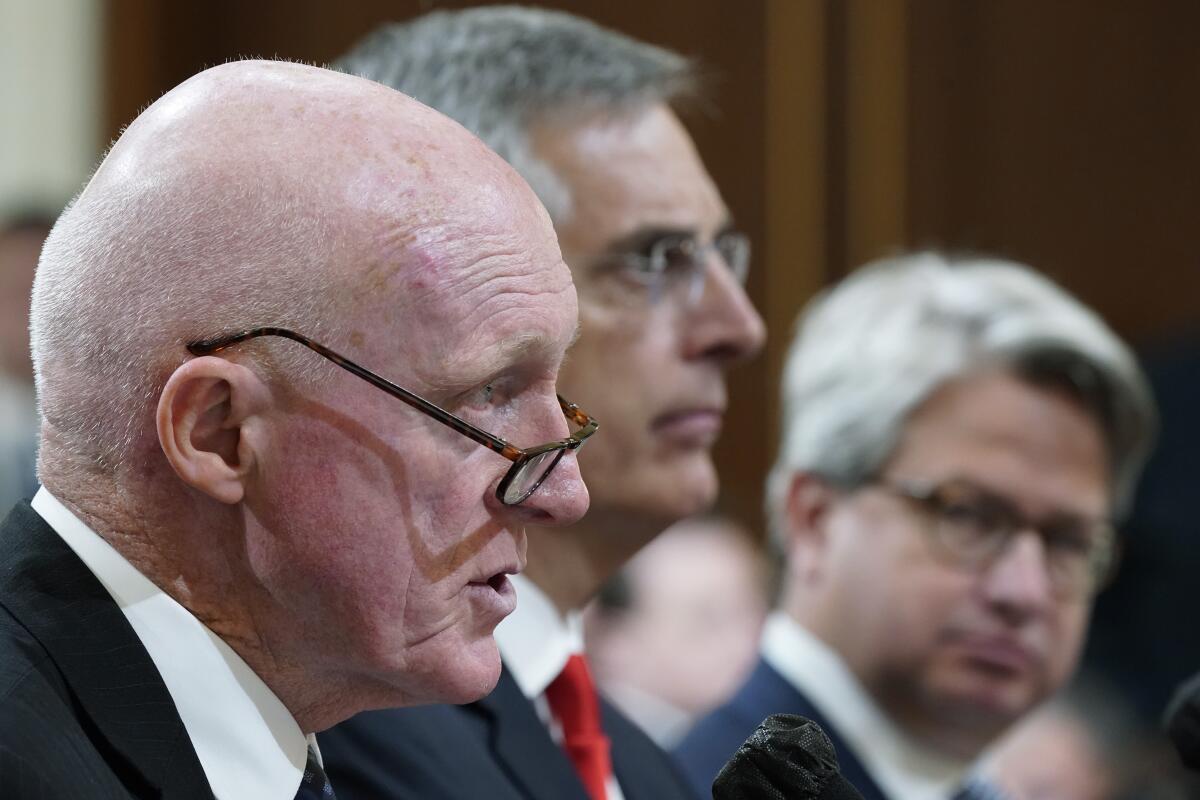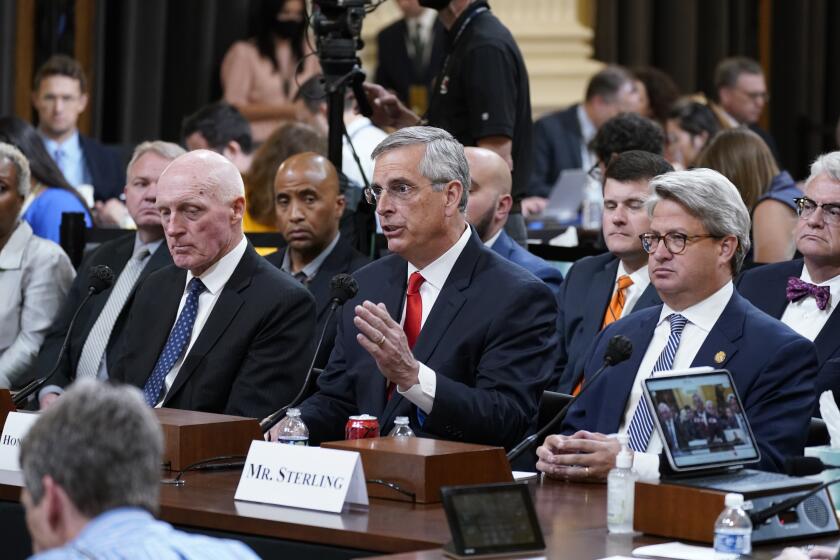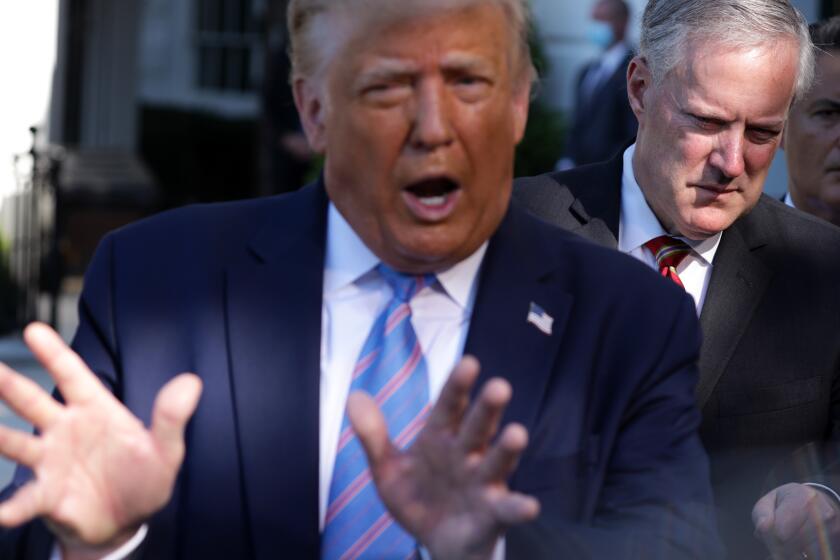State officials received scores of calls from Giuliani, other Trump allies after 2020 election

- Share via
WASHINGTON — President Trump and his allies engaged in a months-long campaign to pressure state election officials in key swing states to help overturn the results of the 2020 election, leading to widespread threats and harassment, according to new testimony at Tuesday’s Jan. 6 committee hearing.
“Pressuring public servants into betraying their oath was a fundamental part of the playbook,” said committee Chairman Bennie Thompson (D-Miss.). “A handful of election officials in several key states stood between Donald Trump and the upending of American democracy.”
State officials, including Rusty Bowers, the Republican speaker of the Arizona House of Representatives, testified that they received multiple phone calls from Trump, along with his lawyers Rudolph W. Giuliani, Jenna Ellis and John Eastman, urging him to decertify the results of the 2020 election and approve a slate of pro-Trump electors.
Bowers testified that on multiple occasions he told Trump and his aides that he would not do anything illegal to help the president.
“You are asking me to do something that is counter to my oath,” Bowers said he told the president.
President Biden won Arizona with just over 10,000 votes, out of 3.4 million cast.
Bowers said he asked Giuliani for proof of his allegations of voter fraud on “multiple occasions,” including the names of people who Giuliani alleged voted illegally, but said he never received such evidence.
State officials from Arizona and Georgia testify in Jan. 6 hearing about the post-election pressure they received from Trump and his allies.
Giuliani and Trump asked Bowers to hold an official legislative committee hearing to consider their evidence of voter fraud and take action. Bowers said he refused, stating that he did not want the “circus” of demonstrations happening at the Arizona Capitol and vote counting centers to come to the statehouse.
“I did not feel that the evidence … merited a hearing,” he said. “I did not want to be used as a pawn.”
The most well-known example of Trump attempting to convince an election official to overturn results in a state he lost is his Jan. 2, 2021, phone call with Georgia Secretary of State Brad Raffensperger, in which Raffensperger was asked to “find” 11,780 votes.
Joseph R. Biden won the state by 11,799 votes. Raffensperger testified Tuesday that after the election his email and phone number were made public, his wife started getting “sexualized texts” and people broke into the home of his daughter-in-law, his son’s widow.
“We followed the law and we followed the Constitution,” he said. “At the end of the day, President Trump came up short.”
In addition to phone calls from Trump lawyers and campaign volunteers, the pressure campaign included comments from Trump on social media and at rallies, protests outside lawmakers’ homes and offices, and online and TV ad campaigns urging officials to act.
British filmmaker will turn over documentary footage filmed behind the scenes with the Trump family to the Jan. 6 committee.
Mike Shirkey, the Republican leader of the Michigan state Senate, told the committee in a recorded interview that he received more than 4,000 text messages after Trump posted his personal number on Facebook, urging his supporters to ask Michigan legislators to decertify the election results. In another clip, Michigan Secretary of State Jocelyn Benson described her alarm one night when protesters gathered outside her home.
Pennsylvania House Speaker Bryan Cutler, a Republican, told the committee he received daily voicemails from Giuliani and Ellis in the last week of November 2020. The calls continued even after Cutler’s lawyers told the Trump campaign to stop.
“I understand that you don’t want to talk to me now,” Giuliani said in a Nov. 29 voicemail released by the committee. “I just want to bring some facts to your attention and talk to you as a fellow Republican.”
Cutler said there were at least three protests outside his home of his district office.
“All of my personal information was doxxed online,” he said. “We had to disconnect out home phone for about three days.”
Before the hearing began, Trump issued a statement calling Bowers a “RINO” — a Republican in name only — and claiming the Arizona Republican told him “the election was rigged and that [Trump] won Arizona.”
Bowers said the claim was false.
“[If] anyone, anywhere, anytime has said that I said the election was rigged, that would not be true,” he said.
More to Read
Get the L.A. Times Politics newsletter
Deeply reported insights into legislation, politics and policy from Sacramento, Washington and beyond. In your inbox twice per week.
You may occasionally receive promotional content from the Los Angeles Times.













